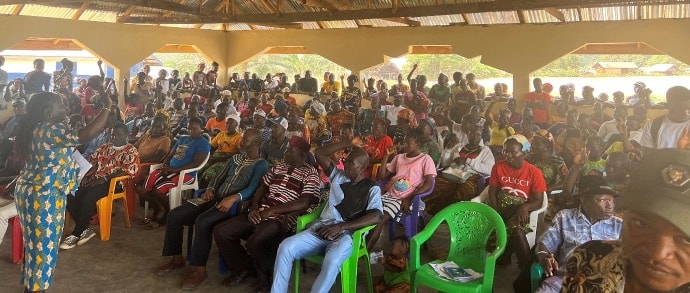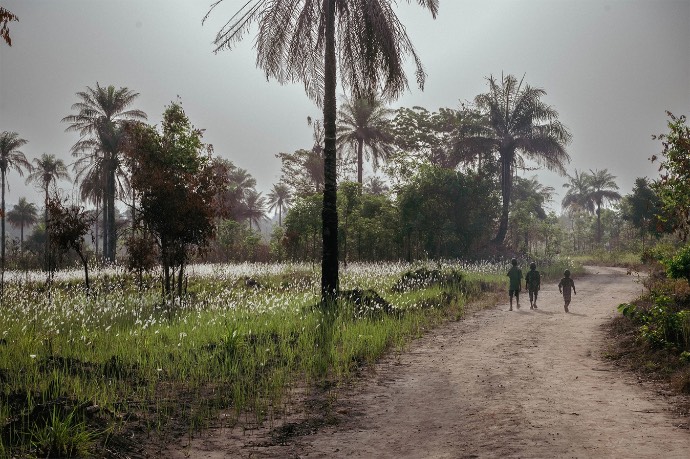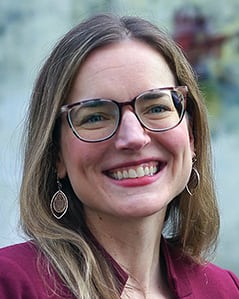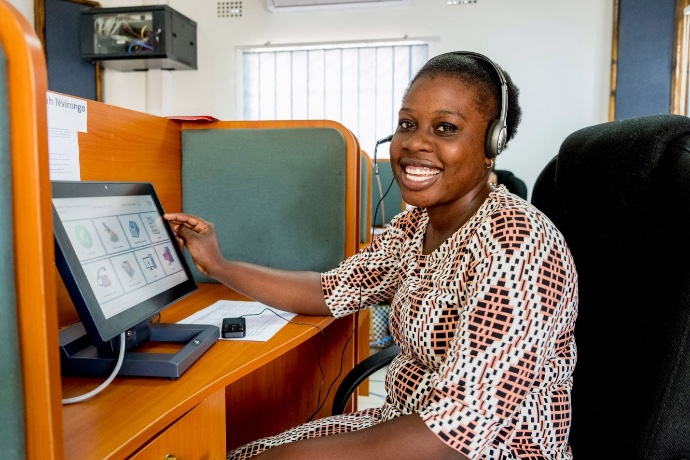IN THIS ISSUE
- Issue Brief: GlobalWA Members Lead the Way in Climate Action and Resilience
- Member Blogs
- Welcome New Members
- GlobalWA Events
- GlobalWA Community Events
- Career Center
Issue Brief
GlobalWA Members Lead the Way in Climate Action and Resilience

CharlVera on Pixaby
Climate change affects every sector, region, and community—but not all bear the burden equally. Those already facing economic, agricultural, or health-related challenges are at higher risk for the devastating impacts of climate change, such as extreme heat, flooding, and food scarcity. Although significant progress has been made in advancing climate adaptation and resilience, growing barriers to philanthropic support highlight the need to reevaluate how we define and deliver impact.
As the consequences of climate change intensify across the globe, so does the need for adaptive responses from involved organizations. Adaptation was a common theme in our June Climate Webinar, co-hosted with DE Design + Environment. Through our conversations about navigating the future of climate action, we learned that the most successful organizations are locally rooted, community oriented, and globally aware. Our webinar speakers, Dr. David Oswald, Sofia Campello Beckwith, and Dr. Grant Gutierrez shared their expertise when it comes to developing climate resilience. Such efforts are marked by a willingness to reframe their approaches when faced with challenges, and to work toward strategies that are adaptive and long-lasting. Whether through developing new technologies, reimagining financing models, or designing new approaches to land and resource management, our speakers demonstrated how real progress requires continued reflection and learning.
Furthermore, these experts emphasized that meaningful climate action is not only adaptive, but also collaborative and justice oriented. It prioritizes equity, inclusion, and shared decision-making. It centers the voices of those most vulnerable to climate disruption and ensures they have power in shaping solutions. Successful climate action requires resilience and adaptation, as well as building fair and connected systems that leave no one behind.
In this issue, we spotlight the work of leading climate champions—organizations that are pushing boundaries in climate leadership and financing, clean energy, regenerative agriculture, and local resilience.
Leaders in Climate Change Mitigation
GlobalWA member organizations are leading the charge in reducing greenhouse gas emissions and promoting clean energy at the global level. They are consultancies, resource hubs, technology-based researchers, and leadership organizations. Below, we showcase the work they have been doing to promote positive climate action:
CleanTech Alliance
The CleanTech Alliance is the leading convener for the Northwest’s clean energy and clean technology sector. We drive innovation, economic development, and public policy to drive clean technology adoption, benefiting all communities. An industry trade association with more than 1000 members, we offer programming for every step of a cleantech company’s journey. We offer entrepreneur education, tech transfer, and commercialization programs; workforce development programs; and lead economic development projects focused on Carbon Removal and Utilization, Fusion Energy, and Built Environment Modernization. Our member companies focus on a wide array of clean energy generation, advanced manufacturing, circular and bio economy projects, efficiencies, and more. Members include corporations, startups, national labs, research institutions, service providers, workforce partners, local governments, and nonprofit partners. Our vision is that every company sees itself as a clean tech contributor, working with innovators to solve the world’s greatest challenges.
Learn more at www.cleantechalliance.org.
Global Impact Collective
The Global Impact Collective is a purpose-driven strategy consultancy collaborating with organizations worldwide to tackle challenges within food systems, the environment, and sustainability. Food sits at the center of the world’s most pressing challenges: climate change, food security, economic resilience, and public health. Transforming food systems isn’t just about feeding people—it’s about building a more resilient, equitable, and sustainable world.
Whether it’s helping to reduce food waste within a specific supply chain or ensuring that global agricultural technologies are delivering the most value to smallholder farmers, we take a human-centered approach to problem solving, always beginning with research to deeply understand and empathize with the people most impacted by the problem— what are their biggest pain points, needs, and priorities?
Most recently, our team partnered with Seattle Public Utilities (SPU) to explore how food businesses and other commercial entities can influence consumers to waste less food and ultimately build a culture that values food. Our team led a 6-month discovery phase that combined desktop research, key informant interviews, and over 30 individual interviews and focus groups (totaling over 100 individuals). Our synthesized insights and recommendations laid the foundation for a strategic roadmap aimed at shifting culture and accelerating progress on food waste in the region.
Learn more at www.globalimpactcollective.net.
Diversity Travel
At Diversity Travel, we want to make sustainable travel the default. Technology has a key role to play in that, and our recent updates such as Air-to-Rail Switching and Carbon Offsetting are just the beginning. We’re building tools that help travelers make more informed, climate-conscious decisions every step of the way. The goal is to give travelers more control and more insight. With these updates, we’re making sustainable travel choices easier— not just possible, but preferable.
Learn more at www.diversitytravel.com.
Good Citizen
Addressing the climate crisis requires bold leadership and coordinated action across every sector. At GoodCitizen, we partner with mission-driven organizations to identify and recruit the leaders needed to meet this moment—leaders who bring not only technical and strategic expertise but also a deep commitment to justice, collaboration, and impact.
We are proud to support organizations on the front lines of climate action, including Climate Lead, Waverley Street Foundation, Water Foundation, Vertue Lab, Pacific Environment, Ocean Conservancy, Robertson Foundation, and the Lemelson Foundation to name a few. These groups are advancing climate solutions across policy, philanthropy, innovation, and grassroots engagement—ensuring that resources, strategies, and leadership are aligned with the scale and urgency of the challenge.
Whether helping build out new climate portfolios or strengthening long-standing programs, we understand that leadership is one of the most powerful levers for change. Our approach is values-driven and equity-centered, focused on finding individuals who can navigate complexity, inspire action, and lead with integrity.
As climate challenges grow in urgency, scale and complexity, the need for leaders is growing. We’re inspired every day by the people currently leading— and newly entering the field to do this vital work.
Learn more at www.goodcitizen.com.
Carbon Direct
Carbon Direct is the leader in science-based carbon management. We help emerging and established climate leaders like Microsoft, JPMorgan Chase, American Express, Mitsui O.S.K. Lines, JetBlue, and The Russell Family Foundation drive scalable and just impact through deep decarbonization strategies and carbon dioxide removal. With Carbon Direct’s scientific approach, organizations can confidently set targets and measure their emissions, implement reductions across their operations and supply chain, and build high-quality carbon dioxide removal into their climate plans to accelerate impact. Go from climate goal to climate action. To learn more visit: www.carbon-direct.com.
Community-based Resilience
Many GlobalWA members are pioneers in climate adaptation and action on the ground. These organizations are promoting community-based and locally-led solutions. Some work closely with indigenous communities, and others specifically focus on empowering women and girls, both disproportionately affected communities. They all share the common goals of protecting the land on which communities depend and providing community members with effective tools for resilience.
Mercy Corps
The most vulnerable people in the world are disproportionately exposed to extreme weather, more reliant on natural resources, and least able to cope with environmental shocks.
Mercy Corps drives bold, locally led solutions to help communities adapt to the impacts of climate change today—while preparing for a more resilient tomorrow. In 2024, we reached over 11 million people with climate-smart tools and strategies that support both immediate response and long-term adaptation.
From sub-Saharan Africa, where smallholder farmers are gaining sustainable access to weather data and climate services, to rural Nepal, where communities are breaking the cycle of disaster through anticipatory flood action, Mercy Corps pairs innovation with deep local partnerships. In Senegal, solar-powered water pumps keep crops growing. In Uganda, solar cold chains reduce food waste.
Through Mercy Corps Ventures, we scale cutting-edge solutions—investing in AI-powered tools and early-stage enterprises that reach the communities least responsible for climate change yet most at risk.
By combining emergency preparedness, nature-based solutions and future-focused innovation, Mercy Corps is proving that climate resilience is not only possible—it’s already underway. Now is the time to invest boldly and accelerate that momentum. We invite you to join us. To learn more, please visit: https://www.mercycorps.org/advance-climate-resilient-communities.
Water 1st International
The climate crisis is a water crisis. In the regions where we work, droughts are longer, rainfall is less predictable, and families face growing water scarcity. Not knowing how climate change will impact the future is deeply unsettling for the people we serve. At Water1st, we work with communities in Kenya, Bangladesh, and Honduras to respond to these challenges by building resilient, community-managed water systems that provide safe, in-home water access 24/7.
Our partners lead with powerful solutions:
- Household water meters ensure efficient, fair use of limited resources. They also turn uncertainty into insight—providing clear, actionable information about water use, how to manage a limited resource, and reduce stress in times of scarcity.
- Watershed protection and reforestation help restore water cycles
- Tiered rates and usage caps promote conservation and system sustainability
Our approach doesn’t just meet basic needs—it builds long-term resilience. In-home water access means families can grow food, stay healthy, and recover faster from climate shocks. Specifically for women and girls—often the most burdened by water collection—it helps them regain time, energy, and opportunity.
Join us at water1st.org to take action for water and climate justice.
FSC Investments and Partnerships
The Forest Stewardship Council (FSC) is advancing climate action through a groundbreaking partnership with Mirova, an impact investment firm, and FSC Investments & Partnerships. Together, we’re launching the FSC Forest Stewardship Impact Fund to unlock finance for forest protection at scale. Forests are a powerful climate solution—critical not only for carbon storage, but also for protecting biodiversity and sustaining livelihoods. Yet financial barriers often stand in the way of long-term stewardship.
This new initiative provides capital for forest managers who follow FSC’s rigorous environmental and social standards, with a focus on projects led by Indigenous Peoples and local communities. The Fund will help bridge the gap between sustainable forest stewardship and investment, driving climate impact where it’s needed most.
Individuals can support climate-positive forestry by looking for the FSC label on everyday products, ensuring they’re sourced from responsibly managed forests. As FSC builds new models for sustainable finance, we invite everyone—from consumers to investors—to be part of transforming markets and protecting forests for future generations.
Learn more at fsc.org/en.
Snow Leopard Trust
Snow Leopard Trust works with local partners to safeguard snow leopards and fragile high mountain ecosystems by implementing various climate adaptation interventions focused on sustainable resource management, ecological restoration and community-led conservation. These initiatives help local and Indigenous communities build resilience in the face of a changing climate and mitigate further damage to their shared ecosystem.
Snow leopard-friendly honey is a new initiative in Kyrgyzstan’s high mountains that is enhancing livelihoods while reducing reliance on livestock. Our program provides equipment and advanced training in beekeeping and honey production. Our community partners are dedicated to conservation, and contribute 20% of honey sales to community conservation projects.
You can help by raising awareness about the importance of climate action to protect snow leopards and their unique habitat.
Learn more at snowleopard.org.
Global Child Nutrition Foundation
Did you know that school meals can help pass along environmental values and teach children about sustainability? From sourcing local ingredients to reducing food waste, school meal programs can help educate children about the importance of environmental stewardship while nourishing them for the future. Explore the results of the Global Survey of School Meal Programs ©, conducted by new Global WA partner Global Child Nutrition Foundation (GCNF), for the latest data on school meal programs around the world and the environment! Also check out GCNF’s School Meal Programs and the Environment infographic to learn more!
Creating Agricultural Resilience
Agriculture is one of the first industries to be impacted by climate, and for many this is their entire livelihood. Several of our climate-oriented member organizations go beyond surface level community-based climate action, working with smallholder farmers around the world to incorporate sustainable and climate-resilient farming practices. Some of these members are highlighted below.
Heifer International
Heifer supports smallholder farmers around the world to end hunger and poverty while caring for the Earth. This is achieved in part through the promotion of sustainability practices that achieve production goals while supporting ecosystem regeneration. While these practices often vary, the goals are similar: to help farmers grow more food in a way that protects the environment, prepares for climate shocks and restores the land.
Heifer has found that the most successful transitions share three traits: tangible short-term payoffs, easy-to-replicate training models and locally sourced materials. Adopting sustainability practices can help producers build long-term food security and increase their incomes.
Learn more at www.heifer.org.
Landesa
Climate change is threatening the land 2.5 billion people depend on to feed their families and grow livelihoods. Landesa advances land-based solutions to build climate resilience and ensure a secure future for people and the planet.
In Liberia, Landesa works with communities to integrate climate risks and conservation priorities into their land use planning process. Last year, two forested rural communities, with a total population of 15,000, designed climate-smart and gender-responsive land use plans to sustainably manage 93,629 hectares of biodiverse forest and ecosystems that protect intact ecosystems, restore degraded ecosystems, promote biodiversity, and support resilient livelihood strategies. Landesa also trained smallholder farmers in the communities on climate-smart agriculture and sustainable land management practices that align with their land use priorities.
Learn more about Landesa’s work on climate change at landesa.org/land-rights-for-climate-justice.
myAgro
myAgro is a rapidly growing 501(c)(3) non-profit organization dedicated to empowering smallholder farmers in West Africa. myAgro offers a mobile layaway platform that allows farmers to save for agricultural inputs in small increments and then deliver high-quality agricultural products and corresponding training to improve farmers’ yields. With its innovative model and commitment to sustainable agriculture, myAgro aims to reach and support one million smallholder farmers by 2027.
Learn more at www.myagro.org.
Working Together Toward a Sustainable Planet

Freepik
As the need to defend against climate change grows, and new and improved approaches to climate action gain momentum, it is imperative that global development organizations position themselves as climate relevant. This means recognizing that challenges related to gender, health, agriculture, and other social justice concerns are also climate issues. Lasting change starts with people, and the future depends on how well we work together to protect our communities, ecosystems, and generations to come.
The GlobalWA community is tackling the climate crisis from every angle. Thank you to all our members who are exemplars of climate action and resilience. Let’s keep building climate solutions that are locally rooted, community-based, globally aware, and guided by equity. Keep us up-to-date at info@globalwa.org!
Member Blogs
Landesa Climate-Smart Agriculture Offers Agency and Resilience in Rural Liberia
Heifer International Indigenous Farmers Strengthen Integrated Farm Systems
Diversity Travel How Diversity Travel is Supporting Smarter, Greener Travel Booking
Carbon Direct How Carbon Direct is Expanding the Social Dimensions of Climate Action
Mercy Corps Digital Tools Help Restore Rangelands and Adapt to a Changing Climate
Snow Leopard Trust What Will Climate Change Mean for Snow Leopards?
Welcome New Members
Please welcome our newest Global Washington members. Take a moment to familiarize yourself with their work and consider opportunities for support and collaboration!
Carbon Direct
We are a purpose-driven carbon management firm dedicated to making carbon science actionable with our end-to-end platform. carbondirect.com
Ecologists Without Borders (ECOWB)
Ecologists Without Borders (EcoWB) is a nonprofit that partners with communities hit hardest by environmental and climate crises—connecting them with the skills, knowledge, and support they need to protect and restore the ecosystems their lives depend on. www.ecowb.org
Global Child Nutrition Foundation
The Global Child Nutrition Foundation (GCNF) provides governments and their partners with knowledge, tools, and connections to build high-quality school meal programs that support all children and contribute to national educational, agricultural, economic, social protection, health, and nutrition goals. gcnf.org
Seattle Area Peace Corps Association (SEAPAX)
The Seattle Area Peace Corps Association (SEAPAX) is a nonprofit organization that supports, connects, and engages Returned Peace Corps Volunteers (RPCVs) in the greater Seattle area. Through community events, service projects, advocacy, and educational outreach, SEAPAX fosters ongoing commitment to Peace Corps ideals and promotes cross-cultural understanding. peacecorpsfund.net
Thembalethu Care Organization
Thembalethu Care Organization is a Christian community-based South African non-profit organization dedicated to caring for the community in the midst of the HIV/AIDS epidemic and poverty. Thembalethu works to share the hope we have with the sick, orphaned and vulnerable in the Amangwe community in KwaZulu-Natal Province, South Africa. Our vision is to share God’s love, raise awareness, promote and support loving care to those infected and affected by HIV/AIDS and poverty. www.ourhope.org.za
The Musa Project
The Musa Project provides hope, healing, and restored dignity to Ugandan women affected by obstetric fistula, while working to prevent future cases of this devastating and preventable condition. musa-project.org
Women of Color Advancing Peace, Security, and Conflict Transformation(WCAPS)
WCAPS is a nonprofit, non-governmental organization that believes global issues demand a variety of perspectives, actions, and voices. That’s why we created a platform devoted to women of color that cultivates a strong voice and network for its members while encouraging dialogue and strategies for engaging in policy discussions on global scale. Through our dedication to mentorship and partnerships and our passion for changing the global community landscape, we remain committed to achieving our vision of advancing the leadership and professional development of women of color in the fields of international peace, security, and conflict transformation. www.wcaps.org
GlobalWA Events
July 16-25
July 17
Summer Happy Hour with GlobalWA, WCAPS & World Affairs Council – Let’s Connect!
August 6
Inside Microsoft Giving: Maximize Fundraising Through Employee Engagement
September 13
Feel the Beat: A Night with the Hawk Foundation
Community Events
Career Center
Executive Assistant The Max Foundation
Executive Assistant to the CEO Panorama Group
Director of Development and Marketing Panorama Group
Outreach Specialist I/II Fred Hutch Cancer Center
Clinical Research Coordinator I/II Fred Hutch Cancer Center





 The urgency for climate action is growing. Following COP29, where 50 countries backed a call for enhanced climate action in tourism, it’s clearer than ever that the travel sector has a major role to play.
The urgency for climate action is growing. Following COP29, where 50 countries backed a call for enhanced climate action in tourism, it’s clearer than ever that the travel sector has a major role to play. 








